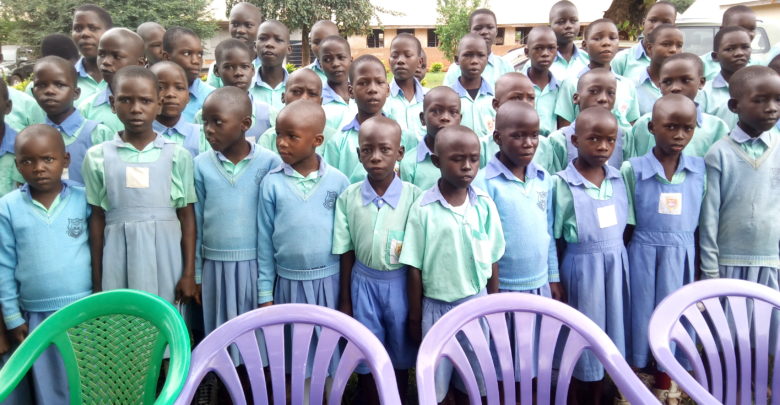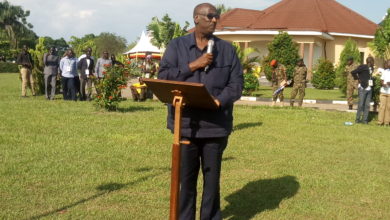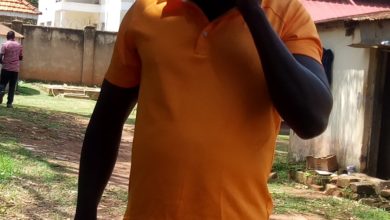
Global Politics
UGANDA: POOR EDUCATION PERFORMANCE IN ACHOLI SUB REGION IS A RESULT OF BLOODSHED AND MIGRATION FOR GREENER PASTURES-EDUCATIONIST ARGUES.
In the 1970s Acholi and Langi suffered in Amin's Regime, now Museveni's regime is killing Acholi including educTIONISTS
Research finding by the East African News Publication in 2003 indicated that 3,000 Acholi scholars with PhD are living outside Uganda in Diaspora as result of Northern Uganda conflict. The East African News Paper Bureau IS based in Dar-es-Salaam, Tanzania.
From 1986 to 2000, most of the students who were recruited in the teaching profession were those who had stopped in Senior Two, or might have used their relative’s academic paper to be recruited in the teaching professional.
The research finding also indicates that over 10,000 teacher and education support staff have been killed from 1986 to 2006 during Northern Uganda conflict, including District Education Officer Mr. Owor Finikasi and former Director of defunct Alero Teacher Training College.
GULU-UGANDA: The Ministry of Education recently released 2019 Uganda Primary Leaving Examination (PLE) which saw that Acholi Sub Region got 1,140 Division I out of 30,713 candidates who sat the Primary Leaving Examination. This is a paltry 3.7 percent.
Lira Municipality alone had a total number 8,773 candidates and 1,030 of them got Division I, representing 11.74 percent. Kamala City Authority schools had a total number 30,188 candidates and 8,342 got Division I representing 27.64 percent.
Mr. Willy Chowoo, a journalist working with Choice FM based in Gulu and an education activist, attributed the poor performance by schools in Acholi sub-region to lack of supervision from the various District Education Inspectors of schools.
According to Chowoo, their finding by a group of former students from Acholi Sub Region indicates that when the education Inspectors of schools are on their routine visitations indicates that even after finding numerous cases of teachers’ absenteeism in class, they just cannot do much apart from verbal warnings.
The inspectors do not suspend teachers for misconduct, education policy is silent on such errant teachers, the research further says.
The finding was gathered upon visiting 20 primary schools and secondary schools in Acholi Sub Region including Gulu High Secondary School, and Gulu Senior Secondary school, Gulu Public Primary School, Koro Seed Secondary School, Bobi Primary School and Atiak Pu-pwonya Primary school among others.
“The finding we got is shocking! We discovered that the officials from Inspectorate of education demand for fuel alliance for school inspection from the schools they inspect.” says Chowoo, adding: “And there are no records that saw class teachers had been reprimanded for their absence from classes during school time. There is no record which indicates that there has been drop in the number of pupils attending classes”.
He argues that even some officials from foundation bodies ‘milk’ schools of meager resources instead of providing better leadership and playing supervisory roles. He says the vice is common among the Anglican Church of Uganda founded schools. Allegation is ripe in a Diocese this church that they would offer at least 2 million Uganda shillings (US$ 560) to the chairman of the Board of Governors which is disguised as transport facilitation (fuel).
The findings further shows that the biggest challenge in education is the competition between private and government (public) schools. Private schools, which normally charge high school fees normally out complete government public schools in term of academic performance and because of this, attract more students than public schools.
Private schools are well supervised and monitored and the teachers are well motivated which promote better learning processes unlike in public schools.
With rampant corruption, teachers maneuver their way for transfer to school of their own interest, not through a normal education sector, where the District Education Officer makes routine transfer. Class teachers just get connected to personnel in the Ministry of Education, and he or she will just be transferred to the school of his interest.
School Management Committee members charge each pupil to pay Parent Teacher Association (PTA) UGX 1,000 for development projects of the foundation body, but the board of Director use that money for person gain instead for developing schools.
Mr. Washington Oyugi, a Graphic Artist Designer and a parent in Gulu says “we must accept that there are some good teachers who are still there in Acholi Sub Region, though most of them have gone for greener pastures outside the country or moved to Central Region of he country but there are also some bad teachers.”
According to Oyugi, such good teachers have moved out of Acholi Sub Region to Buganda sub-region and they have become the brains of quality education in Buganda Region where the best examination results are recorded on a yearly basis.
This development has forced children of top government workers and businessmen in Acholi region are being taken to schools in central region especially Kampala schools.
In the 1960s and 1980s it was contrary. Students from Central Region, especially from Buganda Region, would come to get better education at Sir Samuel Baker School, Sacred Heart Girls Secondary School or Negri Primary School.
“If we want to revive the past glory of education in our areas, let us agree and urge Chief Administrative Officers (CAO) to put a band on taking students to central region. Billions of shillings which are meant to revamp batter education in this region are taken to Central region every term. Estimated to UGX 3 billion shillings (US$. 280,000) used for taking children from Acholi region to central region that money could be used to pay salary for teachers.” Oyugi opinionated
However Oyugi decries that children have resorted to quick means of getting money than concentrating on education. They refer patty things like batting. This day Children are lazy compared to the children who grew up in 1970s and 1980s.
Children at school going age from rural areas prefer peasantry life to going to school. They are interested in farming because after getting proceeds from their gardens, they are interesting in buying clothes and motor bikes and become boda-boda riders (motor cycle taxis) in urban areas. He says children in urban areas engage themselves in video halls, watching pornographic movies.
Parents still think that education is very expensive and they would rather make their children to remain at home and help in domestic chores.




